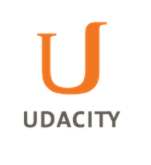| Udacity Looks To AI To Improve Learning Experience |
| Written by Sue Gee | |||
| Saturday, 20 July 2013 | |||
|
MOOCs have come in for a lot of criticism for low retention and low success rates. Udacity wants to improve the MOOC experience and is looking for ways to construct courses to adapt to student needs. The news that San Jose State University is suspending the onine for credit math courses it has been offering through Udacity due to low course-passing rates as compared to traditional classes, has been widely reported. But the negative tone of these reports doesn't seem to be justified. The pilot for Udacitiy's MOOC for College Credit pathway was targeted at a group of "under-served" students including some who had already failed similar courses and had previously required remedial maths help. Even so the high failure rate - between 56% to 76% - does require investigation. One factor that must have contributed to students poor performance is that some students didn't have access to a computer at home and another is that most of them were trying to combine taking the class with working full or part time. All things considered the fact that 83% of the students stuck with the classes to the end should be seen as a positive indicator. Udacity also seems to be taking a positive approach. On the Udacity blog, Sebastian Thrun states that over the coming months Udacity will: retool and optimize the experience for the students we most want to reach.
In this video post lead instructor Andy Brown talks about ongoing experimentation Udacity is conducting to ensure that course content can be tailored to meet students need. Specifically he asks: How can Udacity make sure that our students are always engaged in content that is valuable for them? How can we construct courses to adapt to student needs? This is a question that all online course providers should be asking. The answer is to use some sort of adaptive learning technology, something that has been experimented with over decades. Although MOOCs seem to be a great step forward, limiting the format to having a lecturer write on a display board with voice over augment with quiz question seems to be ignoring the available technology for using student feedback to determine the pace and direction through the course content. Some students will need to be taken back over material, or provided with supplementary material while others can fast track. Peter Norvig and Daphne Koller are among those who have pointed out that online courses provide a massive educational research opportunity. Real advances in education can be anticipated when data mining and AI techniques are combined first to reveal what works and then to automate its delivery. More InformationRelated ArticlesMOOCs Fail Students With Dark Age Methods Peter Norvig On The 100,000-Student Classroom Daphne Koller What We Are Learning From Online Education
To be informed about new articles on I Programmer, install the I Programmer Toolbar, subscribe to the RSS feed, follow us on, Twitter, Facebook, Google+ or Linkedin, or sign up for our weekly newsletter.
Comments
or email your comment to: comments@i-programmer.info
|
|||
| Last Updated ( Saturday, 20 July 2013 ) |


